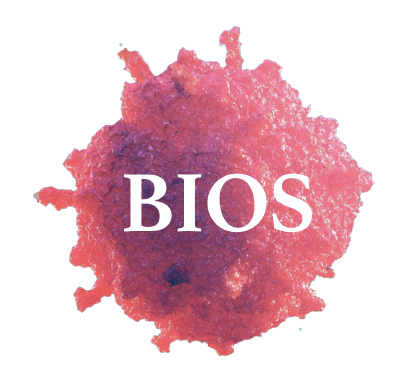56. Future of Gene Editing w/ David Liu - Professor @ Harvard / Vice Chairman @ Broad Institute
Guest: David Liu - Professor @ Harvard & Vice Chairman @ Broad Institute
Hosts: Chas Pulido (@AlixVentures) & Claudia Hill
David Liu is the Richard Merkin Professor and director of the Merkin Institute of Transformative Technologies in Healthcare, vice-chair of the faculty at the Broad Institute of MIT and Harvard, the Thomas Dudley Cabot Professor of the Natural Sciences at Harvard University, and a Howard Hughes Medical Institute (HHMI) investigator. Liu’s research integrates chemistry and evolution to illuminate biology and enable next-generation therapeutics. His major research interests include the engineering, evolution, and in vivo delivery of genome editing proteins such as base editors and prime editors to study and treat genetic diseases; the evolution of proteins with novel therapeutic potential using phage-assisted continuous evolution (PACE); and the discovery of bioactive synthetic small molecules and synthetic polymers using DNA-templated organic synthesis and DNA-encoded libraries. Base editing—the first general method to perform precision gene editing without double-stranded breaks, and a Science 2017 Breakthrough of the Year finalist—as well as prime editing, PACE, and DNA-templated synthesis are four examples of technologies pioneered in his laboratory. These technologies are used by thousands of labs around the world and have enabled the study and potential treatment of many genetic diseases. Four base editing clinical trials are already underway to treat leukemia, hypercholesterolemia, beta-thalassemia, and sickle-cell disease, with the first base editing clinical readout occuring last December, when it was announced that Alyssa, a 13-year-old girl in the UK, was cleared of T-cell leukemia by receiving triply base-edited CAR-T cells.
Liu graduated first in his class at Harvard College in 1994. During his doctoral research at UC Berkeley, Liu initiated the first general effort to expand the genetic code in living cells. He earned his PhD in 1999 and became assistant professor of chemistry and chemical biology at Harvard University in the same year. He was promoted to associate professor in 2003 and to full professor in 2005.
Liu became a Howard Hughes Medical Institute investigator in 2005 and joined the JASONs, academic science advisors to the U.S. government, in 2009. In 2016 he became a Core Institute Member and Vice-Chair of the Faculty at the Broad Institute of MIT and Harvard, and Director of the Chemical Biology and Therapeutics Science Program. Liu has been elected to the U.S. National Academy of Sciences, the U.S. National Academy of Medicine, and the American Association for the Advancement of Science. He is the 2022 King Faisal Prize Laureate in Medicine.
He is the founder or co-founder of several biotechnology and therapeutics companies, including Prime Medicine, Beam Therapeutics, Editas Medicine, Pairwise Plants, Exo Therapeutics, Chroma Medicine, Resonance Medicine, and Nvelop Therapeutics.
Thank you for listening!
BIOS (@BIOS_Community) unites a community of Life Science innovators dedicated to driving patient impact. Alix Ventures (@AlixVentures) is a San Francisco based venture capital firm supporting early stage Life Science startups engineering biology to create radical advances in human health.
Music: Danger Storm by Kevin MacLeod (link & license)
————————————————————————————————
Alix Ventures, by way of BIOS Community, is providing this content for general information purposes only. Reference to any specific product or entity does not constitute an endorsement nor recommendation by Alix Ventures, BIOS Community, or its affiliates. The views & opinions expressed by guests are their own & their appearance on the program does not imply an endorsement of them nor any entity they represent. Views & opinions expressed by Alix Ventures employees are those of the employees & do not necessarily reflect the view of Alix Ventures, BIOS Community, affiliates, nor its content sponsors.

